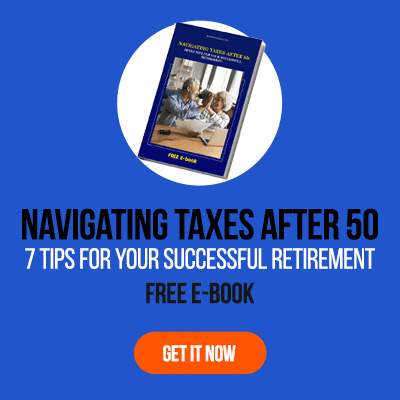Calling all future globetrotters! Ready to explore the world beyond your backyard? Let’s talk about retiring abroad!
Imagine palm trees swaying, exotic flavors impressing your taste buds, and spirited cultures welcoming you with open arms. Where do we sign up?!? Well, just a second… Before you go off into the sunset, you should probably know a few important things first.
Today, Golden Years Bliss wants to dive a little deeper into what retiring abroad REALLY means. From sorting out your healthcare to navigating costs and getting through customs, we’re here to help you every step of the way.
So, grab your passport, and let’s talk about 10 things you should consider before retiring abroad. Whether you’re dreaming of sipping sangria on a beach or soaking up a historical city’s culture, we’ll ensure you’re fully prepared to turn those retirement dreams into reality.
Ready to pack your bags and join the adventure? Continue reading!

The culture shock
Adjusting to a new life takes time, let alone in a foreign country. Even if you’re convinced during visits, it doesn’t feel all that “unfamiliar.”
And if you wish to move to England or Australia, speaking the same language doesn’t mean you’ll understand and immediately feel comfortable in the culture. But living there will give you a new perspective of where you moved from compared to your new home.
This comparison and contrast can be enlightening. Interestingly, the Canadian government outlines helpful coping techniques for expats, mainly after the “honeymoon” phase of moving to an exciting new place is over.
Cost of Living
There’s undoubtedly the potential for sticker shock on certain things once you decide retiring abroad is the right step for you. While you’re tallying up your new cost of living, don’t forget to consider one massive piece of the puzzle: Utilities.
After years of living in the same home and using approximately the same amount of energy, it’s easy to overlook the possibilities of what those exact costs amount to in a different country, warns the community manager with Payless Power in Texas.
Given the added pressure of a usually very fixed income, this can impact several things. Cost-of-living calculators like the one at Expatistan, for instance, can help emphasize differences in crucial areas like rent, transportation, and many other aspects of your life.
Tax surprises
Taxes can be confusing enough for those who never leave the US, so imagine what retiring abroad can do to your friendship with the IRS.
For example, although any income you earn abroad might be excluded from federal taxes, non-earned income like retirement account distributions or pension will still be fair game for Uncle Sam. But that’s just one piece of the pie.
You’ll also need to know the rules in the country where you’ve moved to. You might be able to benefit from a tax treaty that the US has with that country. But it’s best to consult tax experts before you relocate to defend yourself against any confusion.
Selection of goods
No matter where you end up retiring abroad, you’re unlikely to benefit from the same never ending choice of goods you’ve grown accustomed to in US stores.
And that can be an unpredictable source of frustration. You’re coming from a vast market with many levels of price and quality. In a country that’s much smaller, you’ll have far less choices. And to buy quality, you’ll likely pay a lot more.
Residency requirements
Deciding you want to put down new roots in a different country can come with a laundry list of legal concerns. One of the biggest is determining residency requirements in the country you want to move to.
For example, Vietnam is temptingly affordable but lacks a retirement visa, and you might need to renew a tourist visa frequently.
On the other hand, Peru will grant you an indefinite retirement visa if you have proof of a modest monthly income, but you’re not permitted to earn any further professional income.
When considering retiring abroad, begin your research by checking the immigration website of any country you’re thinking about to figure out how you can legally retire there.

Cost of coming back home
Yes, you’ll probably get homesick at some point if you’re retiring abroad, even if you’re retreating to a place with swaying palms and beautiful white sands. So remember to figure in return trips for casual visits with the grandkids, holidays, or medical care.
And don’t just consider the cost of a plane ticket but even the cost of getting to the airport. An outrageously pricey or time consuming return trip a couple of times a year can easily wipe out any financial savings you’ve accomplished at your retirement destination.
Healthcare
For all its flaws, you know what you’ll get in our healthcare system. But what can you expect when retiring abroad? We highly recommend you research various factors. This includes:
-The response time of emergency services
-The condition of facilities
-The presence of globally accredited hospitals
-The availability of your prescriptions
-The doctor-to-patient ratio
And don’t automatically assume you’ll be downgrading. Fees will likely be much lower, and access might even be improved in other countries. Quality is also a top factor to consider.
FYI: The US ranks 37th on the World Health Organization’s list of global health. So, if you’re retiring abroad, you might be able to get better care.
Work obstacles
More and more retirees nowadays opt to do some type of work after they “retire,” whether a low-key part-time gig or consulting that gets them out of the house and lets them earn some extra money.
But, when retiring abroad, you should know that the country you’re considering moving to might require a work permit for non-residents or even stop foreigners from doing specific jobs altogether.
According to the AARP, doing business in a foreign country can also lead to many cultural considerations. For example, immediately tucking someone’s business card into your pocket without studying it could offend some Asian cultures.
Currency
When retiring abroad, you should pay attention to the exchange rate of your chosen country, suggests a wealth adviser with Piershale Financial Group in Illinois.
Some people keep most of their money in US dollar-based assets and then convert to the local currency as required. On the other hand, if you think the dollar will drop, you might want to keep most of your assets in the local currency.
World Report highly recommends that retirees minimize the possibility of currency fluxes by settling in a country that uses the US dollar.
Social Security benefits, which you can still get in all but a couple of foreign nations unlikely to be popular with retirees, like North Korea, are paid out in US dollars and won’t be adjusted because of exchange rates.

Renting vs. buying property
In some countries, it’s pretty standard for those retiring abroad to buy and sell property, with the help of a local attorney, of course. However, in other places, non-citizens can only lease property.
So, many expats would rather rent instead, which also affords them a good deal of flexibility and freedom. Renting first is an excellent idea for retirees who want to test the waters and confirm that they like living in a particular country before buying any property.
If you take the plunge and buy, though, consider crucial factors like financing possibilities, ownership laws, and taxes, warns SmartAsset.
Are YOU considering retiring abroad? If so, how do these things impact you? Please feel free to share your thoughts with us in the comments section below.
And if you found this article useful, we highly recommend you also read: Travel After Retirement: 6 Incredible Trips You Need to Take as Soon as You Retire



















